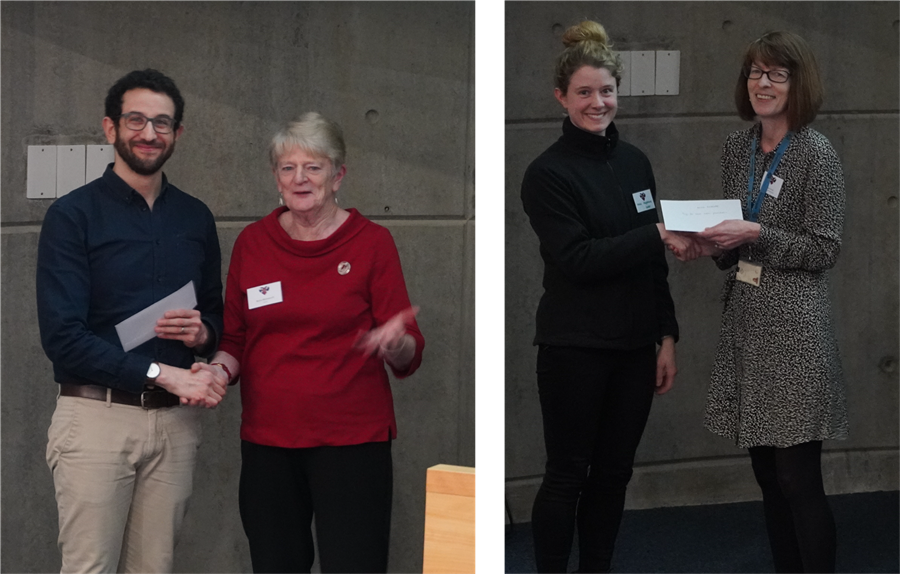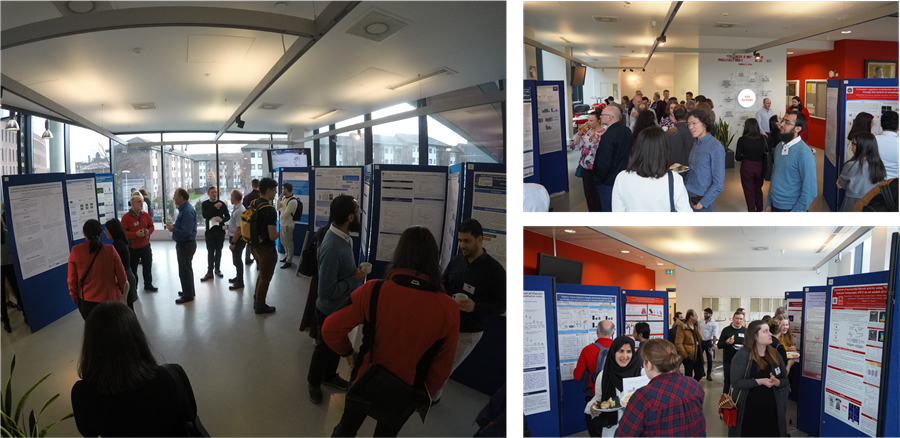The 23rd annual Scottish Cardiovascular Forum (SCF) meeting took place at the Strathclyde Institute of Pharmacy and Biomedical Sciences (University of Strathclyde, Glasgow) on Saturday 1 February 2020. The meeting showcased research from over 100 delegates representing 12 academic institutions throughout the UK and Ireland. The meeting highlighted the diverse and novel research being conducted throughout the cardiovascular and pulmonary hypertension community, while providing a networking opportunity to share ideas and foster new collaborations. The meeting provided a friendly forum for PhD students and post-doctoral researchers to present their work. The studies ranged from in vitro cell systems and in vivo rodent models through to patients. We even had sessions exploring cardiovascular dysfunction in canines, from the perspective of veterinary practice.
Our keynote speaker, Professor Mandy MacLean (University of Strathclyde), started the session with her talk on Sex, drugs and pulmonary hypertension, which explored gender differences and oestrogen metabolism in pulmonary arterial hypertension (PAH). Research investigating the development of PAH suggests that women have a fourfold increase in risk when compared with men. The pulmonary theme continued throughout the day. Researchers presented their work using target-based and computational approaches. Zaher Al Bakour (University of Aberdeen) discussed his research on phosphodiesterase-1C as a novel target in studies using PAH-patient-derived pulmonary artery smooth muscle cells (PASMC) models, and Maria Boumpouli (University of Strathclyde) presented idealistic simulated blood-flow models to study haemodynamic characteristics of the pulmonary bifurcation.
The theme of PAH was present throughout the day, in the form of oral presentations from Lian Tian (then of Queen’s University, Canada, now University of Strathclyde) and Jun Yu Chen (University of Glasgow), who presented their work concerning ameliorating right ventricular function in PAH via increasing right ventricular systolic pressure and skin sodium excess in hypertensive patients. Dr Bean Dhaun (University of Edinburgh) continued the discussion in his presentation, focusing on the role of macrophages in the development and complications of hypertension.
The 23rd annual SCF meeting offered much more than the typical cardiovascular meeting, with fascinating input from physiologists, pharmacologists, biologists and biomedical engineers alike. This diversity was particularly evident in the oral presentations. Calum McMullen (University of Strathclyde) presented his work surrounding the mechanism of tyrosine kinase inhibitor induced cardiotoxicity. Emmanouil Solomonidis (University of Edinburgh) discussed novel targets with a potential role in vascular regeneration in the ischaemic heart. Daniel Longhorn (University of Strathclyde) demonstrated the collaborative efforts of biology and engineering through his work developing an antioxidant stent coating to prevent coronary-artery-stent-induced restenosis.
Anna Koester (University of Glasgow) presented her research investigating the spatio-temporal dynamics of glucose transporter type 4 (GLUT4) dispersal in cardiomyocytes she implemented stochastic optical reconstruction microscopy (STORM) imaging to investigate GLUT4 trafficking. Anna was awarded the SCF oral presentation prize on the day (pictured with Dr Susan Currie below).

Tariq Farrah with Dr Moira Wadsworth (left) and Anna Koester with Dr Susan Currie (right)
The lunchtime poster session provided ample opportunity for the 30 poster presenters to share their research. The session not only allowed the discussion of conducted research, but also the exchange of ideas for future directions and extension of networks in the cardiovascular field.
 A lively and interesting poster session
A lively and interesting poster session
There were many prizes given on the day. The Thermo-Fisher prize for best poster presentation was awarded to Mhairi Paul (Robert Gordon University) for her research concerning how Wnt signalling contributes to cardiomyocyte hypertrophy. The SCF prize for best poster presentation was awarded to Scott Black (University of Strathclyde) for his work investigating blood flow in the aortic arch using computational fluid dynamics.
The main award at the SCF meeting is the Rodger Wadsworth prize. The late Rodger Wadsworth was a Professor in Cardiovascular Pharmacology at the University of Strathclyde and the award is presented to a final-year PhD student on the basis of their achievements throughout their PhD, as well as their oral presentation at the annual SCF meeting. This year, the award was won by Tariq Farrah (University of Edinburgh) for his fascinating work surrounding novel mechanisms and therapeutic targets for cardiovascular disease in anti-neutrophil cytoplasmic antibody (ANCA) associated vasculitis. The award was presented by Dr Moira Wadsworth, the wife of Professor Wadsworth.

Topics of the 23rd annual SCF meeting, taken from the submitted abstracts
Photographs by Mohammed Safar, final-year PhD student, University of Strathclyde
Comments
If you are a British Pharmacological Society member, please
sign in to post comments.